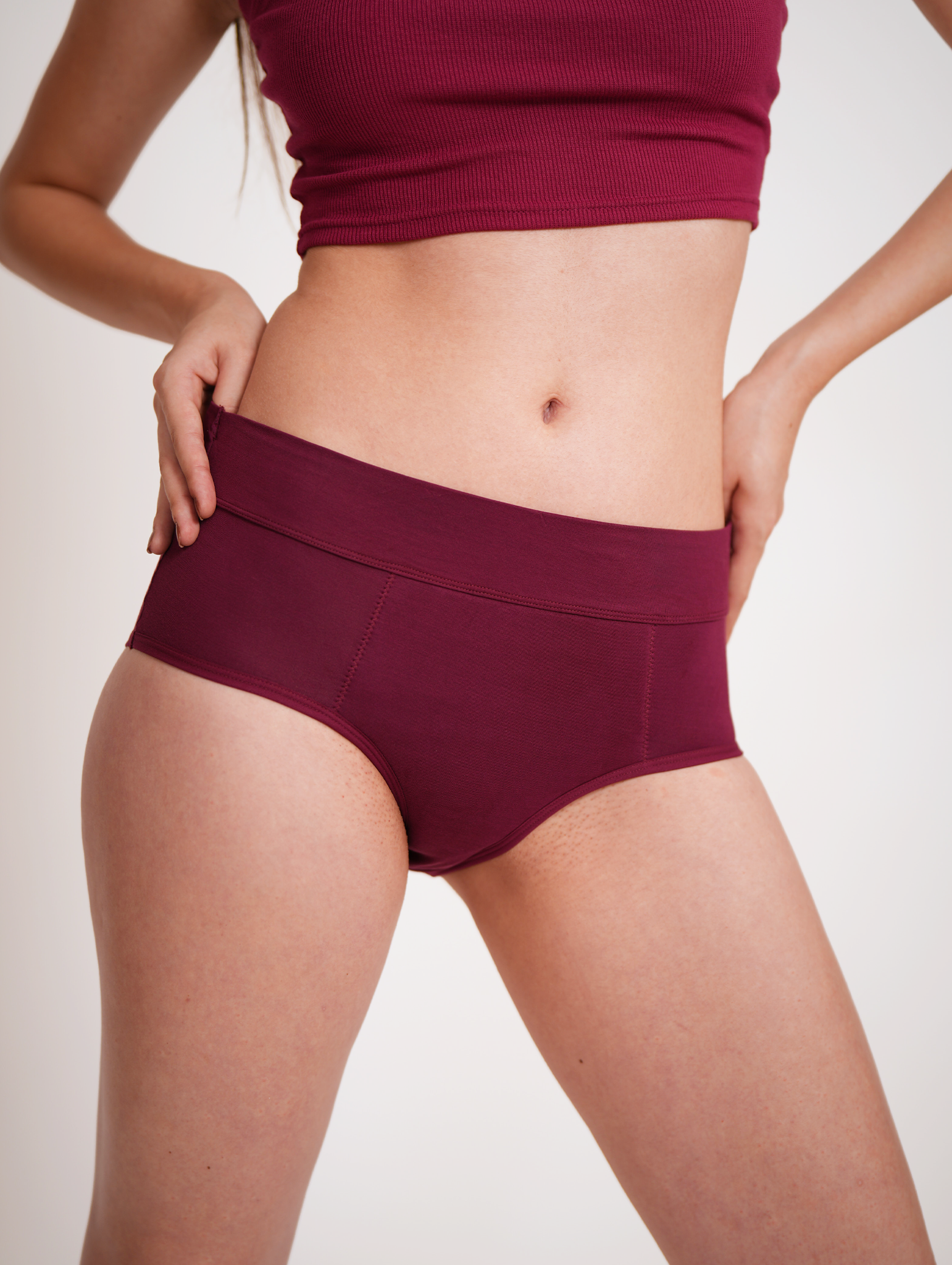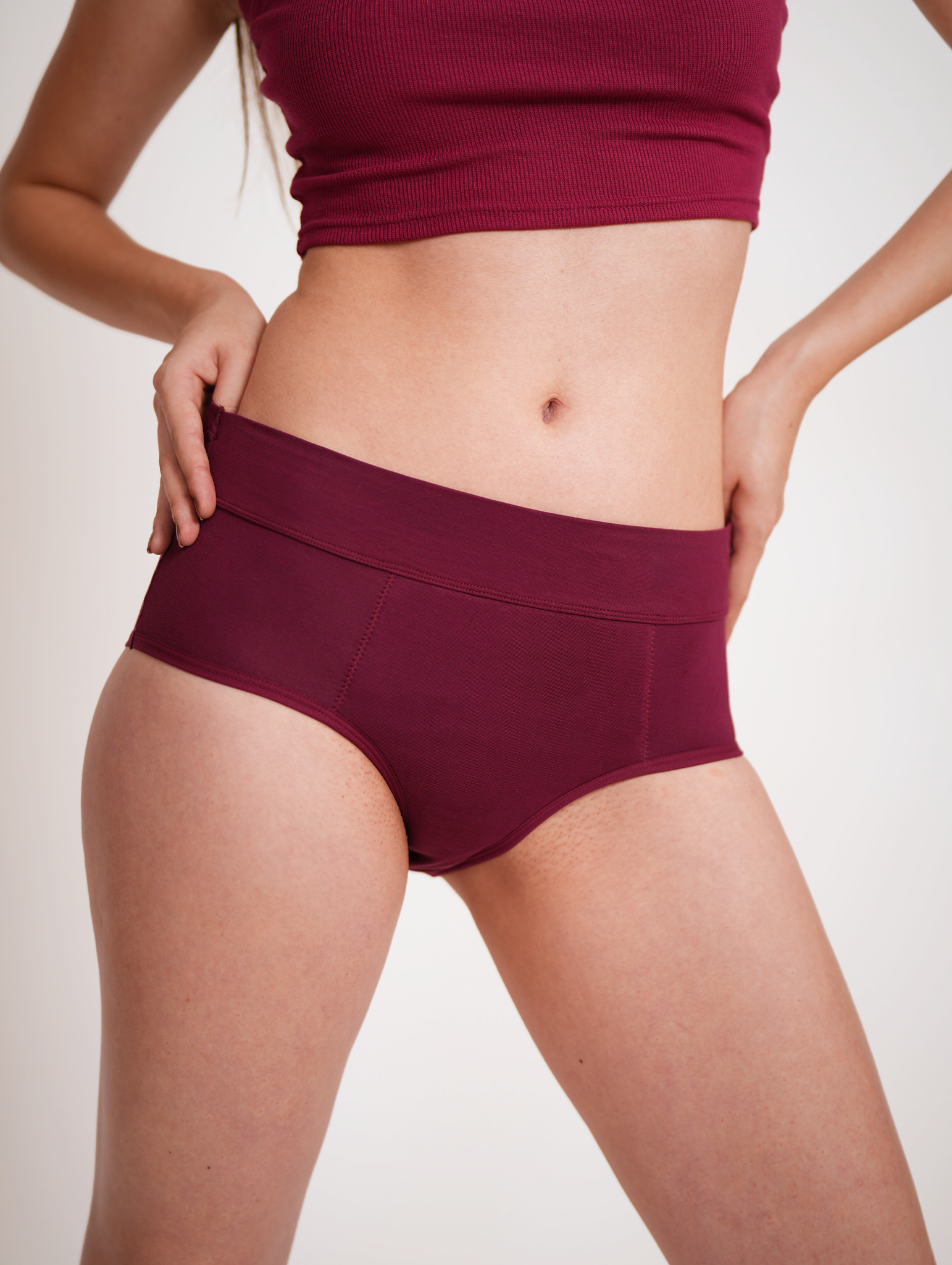Introduction
Ever wondered why your mood shifts, your skin breaks out, or your appetite changes during your period? The answer lies in hormones. Your menstrual cycle is essentially a 28-day hormonal dance involving estrogen, progesterone, LH, and FSH all working in sync to regulate ovulation and menstruation.
Understanding how hormones affect your cycle helps you take better care of your body, recognize irregularities early, and manage symptoms more effectively.
The Menstrual Phase (Days 1–5) – Hormones Hit Low
-
What happens: This is when your period begins. Estrogen and progesterone levels are at their lowest, triggering the shedding of your uterine lining.
-
How you feel: Fatigue, cramps, bloating, and mood swings are common.
- What to do: Rest, hydrate, and opt for comfortable menstrual wear like Revaa Period Panties, which provide leak-proof protection without discomfort.
2. The Follicular Phase (Days 1–13) – Estrogen Rises
-
What happens: Estrogen levels start to climb, stimulating the growth of new follicles in the ovaries.
-
How you feel: Energy and mood typically improve; skin starts to clear up.
- What to do: This is a great time to exercise regularly, eat balanced meals, and track your cycle if you’re trying to regulate ovulation.
3. The Ovulation Phase (Around Day 14) – Hormonal Peak
-
What happens: A surge of luteinizing hormone (LH) triggers the release of an egg. Estrogen is at its highest.
-
How you feel: You might notice increased libido, clear discharge, and a slight boost in energy.
- What to do: Stay hydrated, eat protein-rich foods, and wear breathable underwear to stay comfortable during increased discharge.
4. The Luteal Phase (Days 15–28) – Progesterone Takes Over
-
What happens: After ovulation, progesterone dominates. If pregnancy doesn’t occur, hormone levels drop sharply toward the end.
-
How you feel: PMS symptoms—bloating, irritability, cravings, and breast tenderness, may appear.
- What to do: Manage PMS with light exercise, magnesium-rich foods (like dark chocolate), and calming teas.
Why Understanding Hormones Matters
- Helps identify irregularities like PCOS or thyroid issues.
- Enables smarter lifestyle choices to reduce cramps, acne, or mood swings.
- Encourages menstrual care that aligns with your cycle phases.
Tip: Pair Hormone Awareness with the Right Products
Understanding your hormonal cycle is half the journey, the other half is choosing products that make each phase easier. Revaa Period Panties are designed to keep you comfortable throughout your cycle, whether during heavy flow days or discharge around ovulation.
Conclusion
Hormones are powerful messengers that shape every phase of your menstrual cycle. By tuning in to their patterns, you can take control of your health, manage symptoms better, and flow through each phase with confidence.



